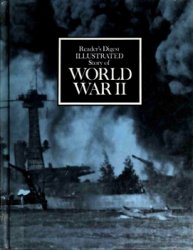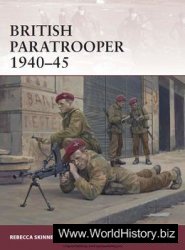The relationship between epic and history, we have found, is complex. Historical epics, that is, epics dealing either with the history of specific events (such as the Persian Wars or Rome’s civil wars) or of cities, regions, or an entire nation (such as some Hellenistic and Roman epics) are a special case. They narrate history, although in various ways heroicizing and mythologizing it. (Aeschylus’ Persians, performed only a few years after the events, offers a comparable example.) They can thus be used, with due caution, to reconstruct history. If all our historical sources had perished and only Ennius’ and Lucan’s epics survived, we would stiU learn much about Roman republican history and Caesar’s civil war - although somewhat less reliably and, of course, without being able to check the very question of reliability.
This is emphatically not the case with heroic epic and least of all with those epics that represent a great poet’s final elaboration of a long tradition of oral song. Despite subjective conservatism inherent in the genre that prompts singers to improve on previous versions of a given song rather than altering it, over time a number of factors cause the original story to be reinterpreted, possibly more than once, and potentially to be distorted beyond recognition. These factors include, among others, audience pressure that forces singers to adjust to changing tastes, needs, and social conditions; deeper transformations and disruptions in the world in which the singers live that cause changes in outlook and values; new events, experiences, and outstanding personalities that capture the imagination of singers and audiences and induce them to replace old songs by new ones or to reinterpret traditional themes more radically; and an inherent tendency, common to all forms of oral tradition, to suppress the individual and specific in favor of the universal. In the cases of medieval and later epics, where independent historical evidence is available, it is clear that only a minimal historical core survives in the extant poems. To reconstruct this core from the epic is impossible because the process of transformation does not follow set rules, is different in each case, and can thus not be unraveled from the end.
The situation is different when we focus on the social background or environment in which the poet places the heroic events and actions. Wherever the epic evidence is substantial enough, the depiction of social structures, conditions, and interactions proves sufficiently consistent to reflect a historical society - despite archaisms, anachronisms, exaggerations, and occasional contradictions that help create a heroic aura and are traits or remnants of composition in performance. The society portrayed is usually the poet’s own. It is usually also a society that is affected by profound changes and challenged by the transition from old structures, values, and norms of behavior to new ones. Based on the limited corpus discussed in this chapter, one might tentatively conclude that, whatever the nature of their predecessors, large and complex heroic epics thrived especially in such deeply unsettled and challenging conditions. This thesis obviously needs to be tested much more broadly, but I suggest that such epics were meaningful to their audiences precisely because the poets dramatized in them some of the major problems and ethical dilemmas that were agitating their listeners. The audience was invited, and needed to be able, to identify with these dilemmas. Heroic distancing and exaggeration were compatible with this purpose, but the basic patterns of social interaction needed to remain recognizable. Hence, theoretically, thematic constancy over a long period of time was possible as long as it permitted the elaboration of topical issues and as long as the description of the social background kept being adjusted to ever changing social conditions. In fact, the themes changed and adapted as well, and the historically authentic core of events became ever more minimal.
Although usually believed to represent history, heroic myth thus became an instrument of ethical, social, and political reflection and offered a timeless and continually valid repertoire which enabled the poets to weave contemporary concerns into the epic action, to illuminate and educate their audiences. Although varying in emphasis and execution, this function is embedded in the monumental heroic epics that survive from antiquity to the Middle Ages. Whether or not this applies less to shorter epic songs (mentioned in the Odyssey or recorded in modern Former Yugoslavia) needs to be explored further. Where this function of epic appears, it confirms a conclusion suggested at least in the GraecoRoman world by other literary genres that dealt with the past (tragedy and historiography): the heroic or historical past was tied to, and remained meaningful for, the present precisely because, and as long as, it served the needs of the present. The concept of preserving the memory of a distant past (in whatever form) simply because it deserved to be remembered or was encapsulated in interesting stories - this concept was not alien to antiquity (we need only think of Herodotus) but not sufficient in itself.




 World History
World History









